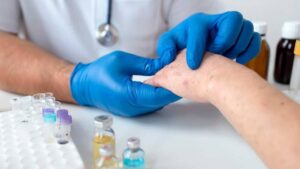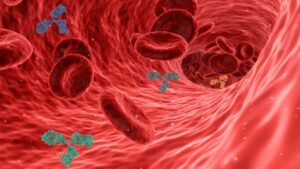The main characteristic of those suffering from herpes is the occurrence of outbreaks and the presence of skin lesions in the affected area during these crises. But what about outside of the outbreaks? Does herpes cause any effects? Learn more!
Can herpes cause symptoms before outbreak crises?
Outside of outbreaks, herpes usually does not cause effects on the body. However, there is an exception for some people in the days leading up to a crisis. Days before a new outbreak crisis, a person may experience what we call “prodrome,” which are symptoms referred to the location where the lesions will appear. Prodromal symptoms can include pain, burning or discomfort at the site, general malaise, and numbness. These prodromes act as a sign that a crisis is imminent. With the crisis established, redness, pain, and blisters on the lips and inside the mouth commonly appear, along with constant itching.
Can a patient outside of a crisis transmit the herpes virus?
Yes, people without visible symptoms or outbreaks of herpes can transmit the infection to others. The herpes simplex viruses (HSV-1 and HSV-2) can be transmitted by an infected person to someone susceptible, meaning someone who has never had contact with these viruses. Of course, this transmission occurs at a much lower rate compared to the active phase of the disease, as the virus is most abundant in active lesions. Even in the absence of herpetic lesions, transmission is still possible because the virus is present in the oral (HSV-1) and genital (HSV-2) mucous membranes. During these latency periods (between outbreaks), since there are no lesions, there are typically no symptoms or local discomfort.
Main precautions against herpes
Taking care of one’s health is essential to avoid herpes, so it is recommended to eat healthily to maintain a strengthened immune system, avoid strong sunlight, and always engage in sexual relations using condoms. When the disease is already established, seeking an appropriate solution is essential.
The treatment of herpes virus infection is indicated during outbreaks, i.e., in the presence of active lesions, with the aim of shortening the duration of the disease (making the lesions heal faster). For this, antiviral drugs are used orally and/or topically (ointments or creams), generally for 5 to 7 days.
Treatment does not eliminate the herpes virus from the body
Precautions are not capable of eradicating the virus from the body. Herpes viruses cause a chronic infection with latency in nerve ganglia and cannot be eliminated. Nevertheless, it is important to continue herpes treatment to reduce the frequency of outbreaks.




